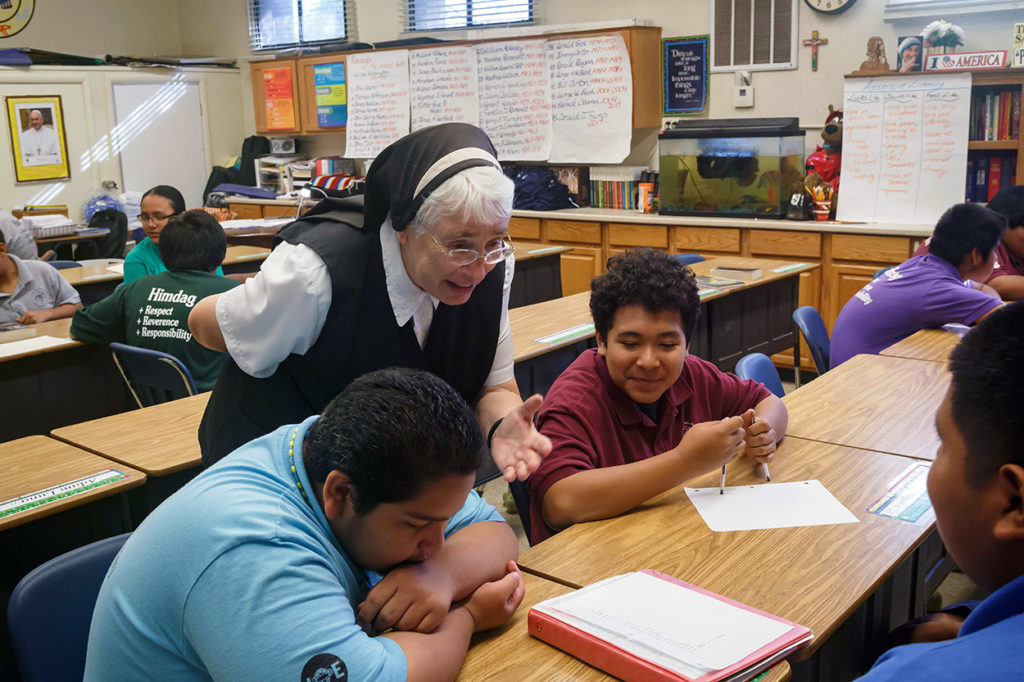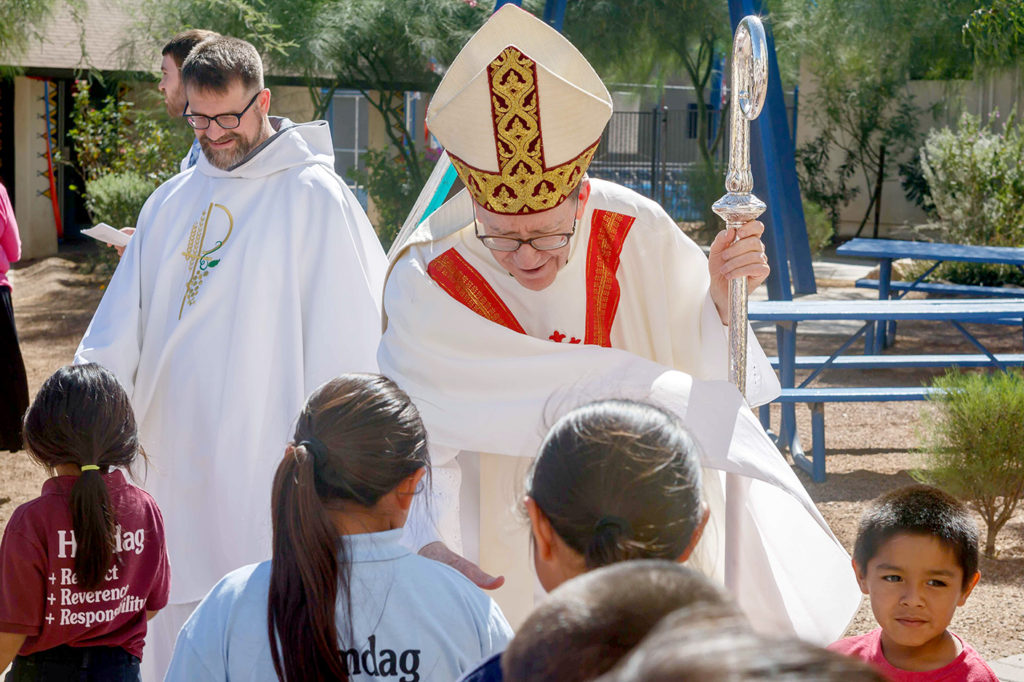

St. Peter Indian Mission School
Founded in 1923 on the Gila River Indian Reservation, the school provides education and support for local children and their families. Since 1935 the school and parish have been overseen by the Franciscan Sisters of Christian Charity, all involved are committed to the mission’s continued success.
At St. Peter Indian Mission School in Bapchule, Patricia Brown spends many hours each year helping families fill out scholarship forms to cover the school’s $5,000 per student tuition.
“It is more on paper than in reality. The families can’t afford to pay,” Brown said of the annual tuition. “That is where CDA (diocesan Charity and Development Appeal) comes in to help us.”
As the financial officer for Native American Ministries she wears many hats, though helping families discover ways to give their children a Catholic education is her most rewarding work.
“You see the kids and what their potential can be, and it is exciting,” Brown said.
The preschool through eighth-grade Catholic school, established on the reservation in 1923, has a staff of 40 people. Each level requires an aide in the classroom, and since many of the students are below the poverty line, the school serves breakfast and lunch each day.
Brown has watched many students at St. Peter thrive in the school’s healthy, academic environment. Far from gangs, drugs and alcohol abuse, the school is a safe haven for them.
EN ESPAÑOL: Escuela ofrece educación católica a estudiantes Nativos Americanos
Charity and Development Appeal (CDA)
The Charity and Development Appeal supports more than 70 educational, charitable and spiritual organizations which counsel, feed clothe, house, educate and comfort those in need throughout the four counties in the Diocese of Phoenix.
“Bishop [Thomas J.] Olmsted calls us the diamond in the desert because it is some place that they can come to,” Brown said of the students.
St. Peter’s has had several students go on to attend Catholic high schools, then college, she said.
“Right now, the biggest challenge for students to continue in Catholic schools in high school is funding for tuition.”
Ginger Ortiz, an aide for all grades at the school, now has her own son at St. Peter.
“What I like most is it is very family-oriented and welcoming,” she said. “Because it is small, we can be more one-on-one with the students.”
She said students learn about their Catholic faith and also their Pima culture through classes about three times a week.
Franciscan Sister Martha Mary Carpenter, principal, said that St. Peter Indian Mission School is the “only Catholic school on the entire reservation.”
“As such, I think we are the center of evangelization,” Sr. Martha Mary said. “Children have a way of drawing their families into their community.”
This year she said the parish welcomed 24 into the Catholic Church on Holy Saturday.

“For us, CDA means ‘Can’t Do Alone,’” Sr. Martha Mary said. “Without the CDA we couldn’t do what we do.”
What faithful Catholics do best is “give hope,” she added.
“The thing I love most about my job is that I am able set an atmosphere where our children can grow closer to Christ and to one another. As an administrator, that means I get to set the atmosphere of faith, hope and love.”
There are 12 Native American reservations in the Diocese of Phoenix, with eight mission churches on four different reservations throughout the diocese, said Fr. Antony Tinker, FHS, director of Native American Ministries.
When the Franciscan Friars of the Holy Spirit arrived in the diocese three years ago, there was only one priest serving on the reservations, but not living there. The friars took up residence in a former convent next to St. John the Baptist Parish in Laveen, also on a reservation, as a permanent presence. They also established two youth groups in the parish, began celebrating a weekly Mass at the school, and created a regular schedule of Masses, confessions and religious education.
“Poverty in our community is real physically, spiritually and emotionally,” Fr. Antony said. “There is no shortage of pastoral issues to deal with — no day is the same. You get a little bit of everything.”






